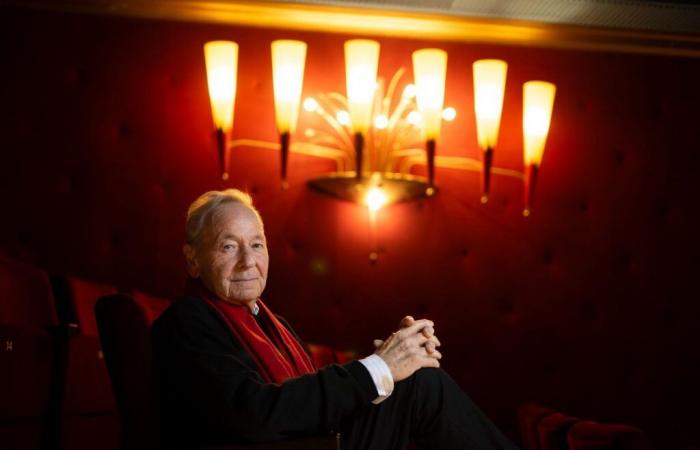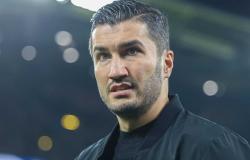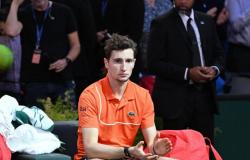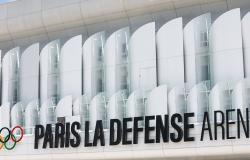Portrait of Pierre Koralnik –
A humanist filmmaker without borders
The Cinematheque pays tribute to the 87-year-old director, who filmed with the big names of the 7th Art.
Francine Brunschwig
Published today at 9:00 p.m.
Pierre Koralnik at the Capitole, where his retrospective will be screened throughout the month of November.
FLORIAN CELLA
Subscribe now and enjoy the audio playback feature.
BotTalk
“A strange and delirious archive of a crazy evening.” This comment by the French writer Gilles Sebhan refers to the documentary made by Pierre Koralnik in 1964 in the studio of the English painter Francis Bacon. Koralnik? I’m telling you about a filmmaker and star director of Télévision romande (and ORTF) that people under 20 cannot know. But the retrospective organized this November by the Swiss Cinematheque, the Geneva International Film Festival, the RTS and the INA (National Audiovisual Institute, Paris) reveals the abundant filmography. In world premiere, the documentary Pierre Koralnik, filmmaker and visionary (2024) is also presented there.*
Endowed with both journalistic and artistic flair, great creativity, fiercely independent, the Franco-Swiss filmmaker has practiced all genres, on the sets of French-speaking Switzerland, France and Germany. “If we showed that we were capable, French-speaking Television gave us the means and great creative freedom,” testifies the director, 87 years old. Serge Gainsbourg, Jane Birkin, Anna Karina, Jean-Claude Brialy, Michel Bouquet, Françoise Hardy, François Périer have marked his work and his life. Likewise the Knie brothers, Denis de Rougemont, James Baldwin, Adolf Wölfli, among others, of whom he made unpublished portraits.
But let’s listen to him talk about his improbable meeting with Francis Bacon. We are at his home, in Zurich, where he has lived since the 1970s, after his marriage to Eva, whom he met in Geneva and who ran a literary agency on the banks of the Limmat. Jeans and black sweater, slim figure, lively and alert mind, he says. “I was stunned by an exhibition by Francis Bacon at the Kunsthaus in Zurich. In London for a report on the economic situation, I contacted his gallery. In the end, Koralnik gets an appointment. “I told him: we do what you want!” Result: a crazy shoot in the painter’s studio – surrounded by friends and drinking lots of pastis – who ends up, drunk, almost collapsing. Broadcast on the program “Continents sans visa” (the ancestor of “Temps Present”), the film had an international impact (and inspired a book by the writer Gilles Sebhan).
Refugee in 1943
Nothing in the family trajectory suggested a career at TSR. Pierre was born in Paris in 1937. His parents had left their native Ukraine in the 1920s for Warsaw, then Berlin. With Hitler in power, the Jewish family decided to leave for Paris, then, in 1940, to the free zone for Marseille. “My mother and I were interned for a while in the infamous Camp des Mille.” Having managed to escape, the Koralniks found smugglers who took them to Switzerland.
After initially staying in internment camps, they regrouped in Geneva. “I obtained a scholarship for the gymnasium, thanks in particular to the warm support of Jeanne Hersch.” The professor and philosopher helped her enter IDHEC (Institute of Advanced Cinematographic Studies in Paris). “I loved going to the movies. I saw myself as a critic or director.” First assistant to the filmmaker Robert Enrico, he returned to Switzerland, working briefly for German-speaking TV before being approached by TSR, a breeding ground for the pioneers – Goretta, Tanner, Roy, Soutter – of the new French-speaking cinema, first trained at the school of reporting.
Close to Serge Gainsbourg
A free, versatile electron, Pierre Koralnik stands out as much in political or social programs (on Nazism, black Americans, oligarchs, unemployment) as in variety shows, fiction and portraits. Among the latter, that of the black writer James Baldwin will be a landmark. “I had read his text, “A stranger in the village”, published in 1951, during his stay in Leukerbad.” He recounts his experience as the first black person in this village, as children pass by shouting “Neger, Neger”. Ten years later, Pierre Koralnik suggested bringing the American back to Leuk and filming him. “Nothing had changed. The snow was still white!”
In 1967, “Anna”, a musical comedy filmed in the streets of Paris and for which Serge Gainsbourg composed the music and texts, hit the screen of the first French channel and boosted the director’s career. For a year, he hosted the French singer in his Parisian apartment. “Serge had just left his current wife and didn’t know where to go. We worked together very well. He was already smoking and drinking. I brought him back drunk several times at the end of the evening from Régine’s house. Later, I directed “Cannabis,” with Serge and Jane Birkin. We remained very close until he became Gainsbarre, provocative and immersed in alcohol.”
“An all-out explorer”
Although he has shot a few films with Switzerland as a setting (“Rumeur”, “Le rapt”, an adaptation of a novel by CF Ramuz), Koralnik considers himself “a thousand miles from what we call cinema Swiss”. For Frédéric Maire, director of the Cinémathèque, he is “a filmmaker without borders, both physical and stylistic. It evolved on an extraordinary playing field, but, paradoxically, was not perceived at its true value, because it remained within the confines of television.”
François Vallotton, professor of contemporary history at UNIL, is delighted with the tribute to the filmmaker. “He was an all-out explorer. Off the beaten track, he addressed societal themes, was interested in marginalities, always from a deeply humanist perspective marked by his personal trajectory.
*Pierre Koralnik retrospective, Cinéma Capitole, Lausanne, from 5/11: debates 2 p.m.-7 p.m., “Anna” 8 p.m. in the presence of the filmmaker. Several films will be broadcast on RTS. See www.rts.ch/archives
Bio
-
1937 Born on December 25 in Paris.
-
1942 Arrives in Switzerland as a refugee with his parents and his brother thanks to smugglers.
-
1957 Graduated from the Institute of Advanced Cinematographic Studies (IDHEC) in Paris.
-
1958 Assistant to the filmmaker Robert Enrico
-
1962 Debuts on French-speaking Television.
-
1964 Winner, with Jean-Louis Roy, of the Rose d’Or in Montreux for the variety show Happy End.
-
1967 “Anna”, with Jean-Claude Brialy and Anna Karina, music and texts by Serge Gainsbourg.
-
1969 “Salomé”, after Oscar Wilde, choreography by Maurice Béjart
-
1970 Marries Eva, moves to Zurich.
-
1978 Birth of Ania, followed by Marc (1983).
-
2024 Retrospective at the Swiss Cinematheque and premiere of Pierre Koralnik, filmmaker and visionary, directed by Christoph Weinert.
Did you find an error? Please report it to us.
0 comments






